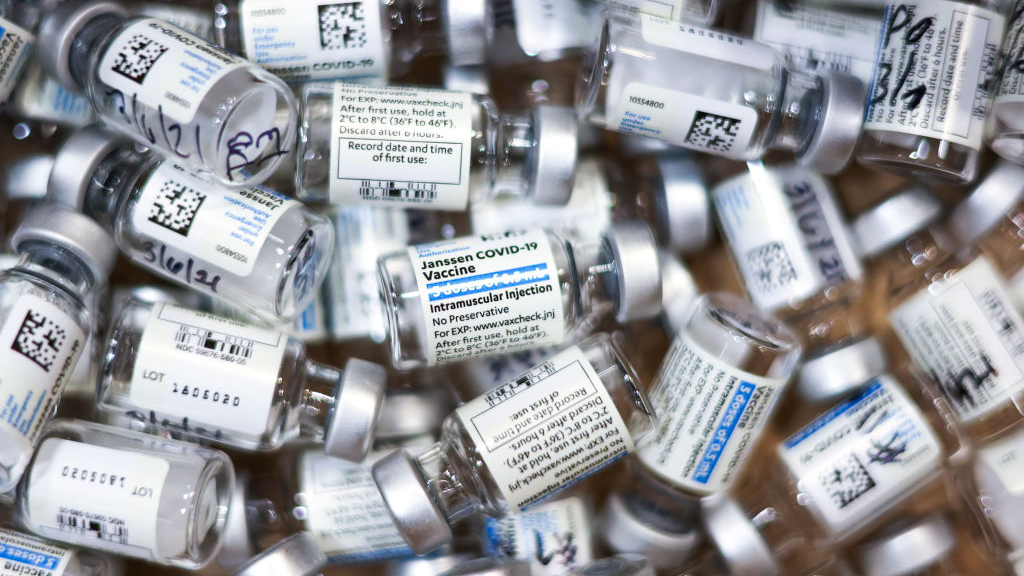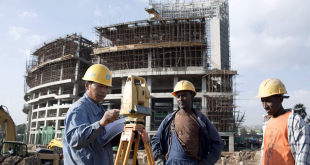
Digital generated image of COVID-19 vaccine bottles standing on glowing robotic production line on black background. /Getty
As states struggle to combat COVID-19, primarily through vaccinating their respective populations, it is imperative that vaccinations are made available across the board and indiscriminately.
The fair and equal access to vaccines is critical if want to win the battle against COVID-19, as vaccinating populations in isolation with oblivion of the marginalized countries and/or communities does not make the world a safer place since today’s globalized world is premised on interdependence and interconnectivity.
This February, Dr. Fauci, Chief Medical Advisor to U.S. President Joe Biden, said that even if the whole U.S. population is vaccinated, seeping in of COVID-19 variants from other countries would still threaten reinfection and a resurgence of cases in the United States. “Bottom line: We have to get the entire world vaccinated, not just our own country,” Dr. Fauci said.
The developed countries need to assume what Joseph Nye calls a “positive-sum” approach in international relations, as opposed to a “zero-sum” approach. While we see a “zero-sum” strategy that has traditionally emanated from Washington, the same should not be applied to public health governance, at a time when health infrastructure, particularly in the developing world is under siege by COVID-19.
The COVAX facility, a multilateral endeavor, co-led by the WHO, seeks to address existing and prospective inequalities that could further affect vulnerable countries. Jeffrey Sachs, a noted economist at Columbia University has said that the COVAX facility will have a rate of 20 percent vaccinations by the end of this year, and is not aimed for universal coverage. Sachs also projected that an amount of $50 billion is required for universal vaccine coverage by the end of 2022, an amount which is not unrealistic for affluent Western countries but which they have thus far not pledged. On August 18, 2020, the WHO Director wrote to member states, saying, “While there is a wish among leaders to protect their people first, the response to this pandemic has to be collective.”

Used vials of the Johnson & Johnson COVID-19 vaccine, the newest vaccine approved by the U.S. FDA for emergency use, sit in a box at an event put on by the Thornton Fire Department in Thornton, Colorado, March 6, 2021. /Getty
According to a report published by the British Medical Journal called The Unequal Scramble for Coronavirus Vaccines-By the Numbers, “wealthy countries have struck deals to buy more than 2 billion doses of coronavirus vaccine in a scramble that could leave limited supplies in the coming year.”
It highlights that the UK, U.S., Japan and the EU pre-ordered millions of vaccines directly from the manufacturers, in some cases, hoarding vaccines and procuring what was more than they required, ultimately at the cost of lesser developed countries.
Brook Baker, who studies access to medicines at Northeastern University in Boston, said in the report that the UK announced to buy 90 million doses from two manufacturers and that the government announced that this deal would ensure fair access of a vaccine around the world, which seemed like an oxymoron. “If you buy up all the supply, it’s just plain hypocritical to argue you’re for equitable access. You’re for equitable access for what’s left over,” he said.
As the G7 met in London last week, what is supposed to be a concert of the major economic players of the world, India, Australia, South Africa and South Korea were invited as guests where as China was conspicuous by not being invited. At a time when a collective and coordinated effort is required to ensure an effective post-pandemic economic recovery as well as equitable access to vaccines in developing countries still struggling with the pandemic, the G7 meeting signaled narrow political priorities of containing China (and Russia).
Excluding China and Russia, and mobilizing what seemed like coalition building against the “China threat” will only serve to deepen the schism in multilateralism and global cooperation, as opposed to healing it. In its joint communiqué of May 5, the G7 predictably referred to China’s Taiwan, Tibet, Xinjiang and Hong Kong, where it voiced its “concern” on alleged human rights violations amongst a host of other grievances.
The G7, collectively being the biggest economic power in the world, has a greater responsibility to demonstrate leadership both for developing countries affected most by the pandemic as well as for equal access to vaccines, giving “financial teeth” to COVAX and providing impetus to economic recovery whose focus should be most vulnerable global south.
We see vaccine nationalism and narrow political interests replacing global leadership by the West, as has been demonstrated consistently, the latest being the case of the G7 communiqué. The Biden administration will miss the proverbial boat of resuming leadership of the U.S. as a responsible leading global actor, that addresses challenges and shows leadership on key issues via international cooperation and multilateralism, and this will only continue to diminish the U.S. and the West’s national and international interests.
Mustafa Hyder Sayed is the executive director of the Pakistan-China Institute.
 Africa -China Review Africa -China Cooperation and Transformation
Africa -China Review Africa -China Cooperation and Transformation
